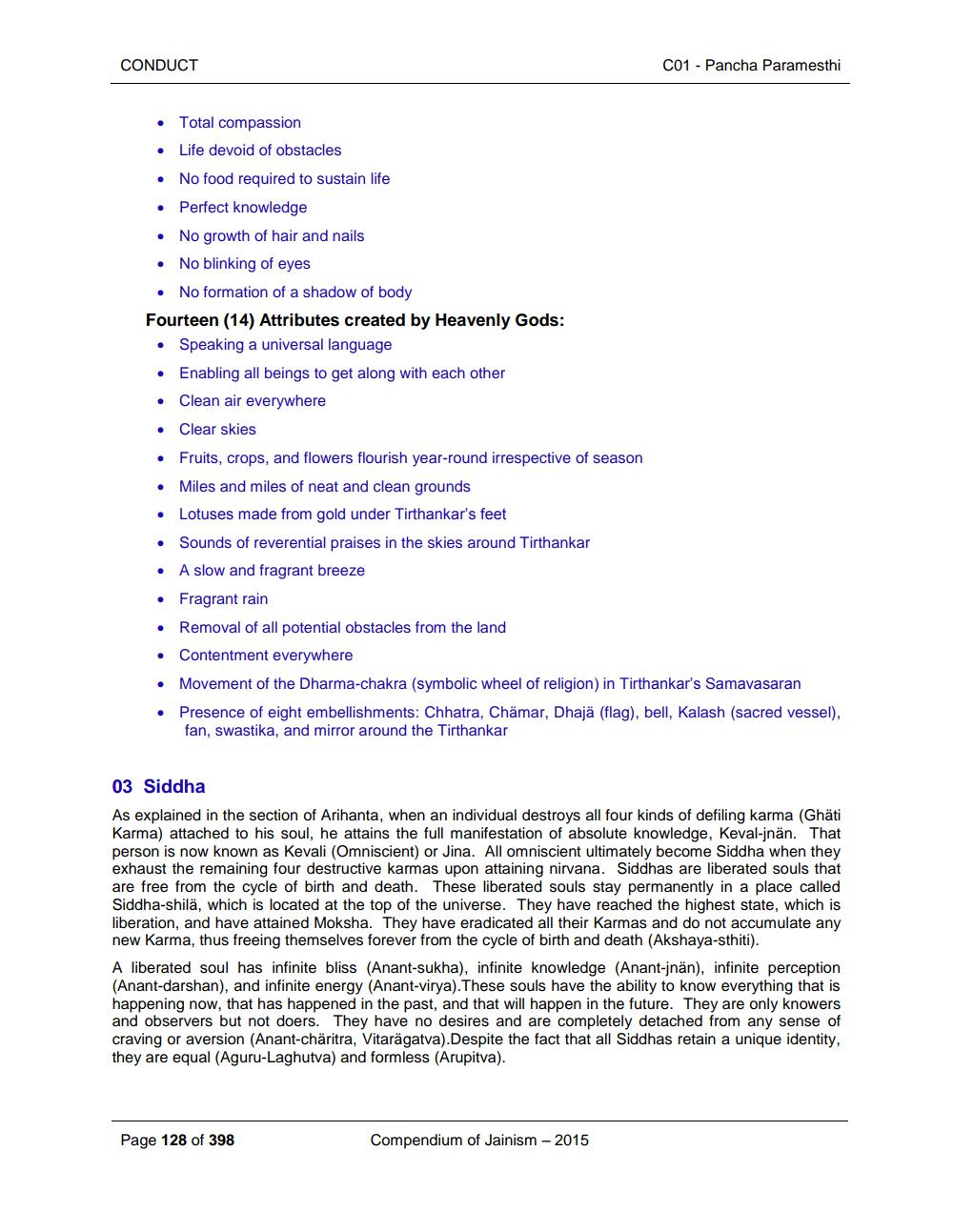________________
CONDUCT
C01 - Pancha Paramesthi
• Total compassion • Life devoid of obstacles
No food required to sustain life
Perfect knowledge • No growth of hair and nails • No blinking of eyes
• No formation of a shadow of body Fourteen (14) Attributes created by Heavenly Gods: • Speaking a universal language • Enabling all beings to get along with each other
Clean air everywhere Clear skies Fruits, crops, and flowers flourish year-round irrespective of season Miles and miles of neat and clean grounds Lotuses made from gold under Tirthankar's feet Sounds of reverential praises in the skies around Tirthankar A slow and fragrant breeze Fragrant rain Removal of all potential obstacles from the land Contentment everywhere Movement of the Dharma-chakra (symbolic wheel of religion) in Tirthankar's Samavasaran Presence of eight embellishments: Chhatra, Chämar, Dhajä (flag), bell, Kalash (sacred vessel), fan, swastika, and mirror around the Tirthankar
03 Siddha As explained in the section of Arihanta, when an individual destroys all four kinds of defiling karma (Ghäti Karma) attached to his soul, he attains the full manifestation of absolute knowledge, Keval-jnän. That person is now known as Kevali (Omniscient) or Jina. All omniscient ultimately become Siddha when they exhaust the remaining four destructive karmas upon attaining nirvana. Siddhas are liberated souls that are free from the cycle of birth and death. These liberated souls stay permanently in a place called Siddha-shilä, which is located at the top of the universe. They have reached the highest state, which is liberation, and have attained Moksha. They have eradicated all their Karmas and do not accumulate any new Karma, thus freeing themselves forever from the cycle of birth and death (Akshaya-sthiti). A liberated soul has infinite bliss (Anant-sukha), infinite knowledge (Anant-jnän), infinite perception (Anant-darshan), and infinite energy (Anant-virya). These souls have the ability to know everything that is happening now, that has happened in the past, and that will happen in the future. They are only knowers and observers but not doers. They have no desires and are completely detached from any sense of craving or aversion (Anant-chäritra, Vitaragatva). Despite the fact that all Siddhas retain a unique identity, they are equal (Aguru-Laghutva) and formless (Arupitva).
Page 128 of 398
Compendium of Jainism - 2015




